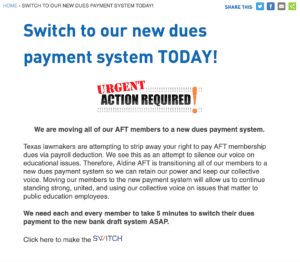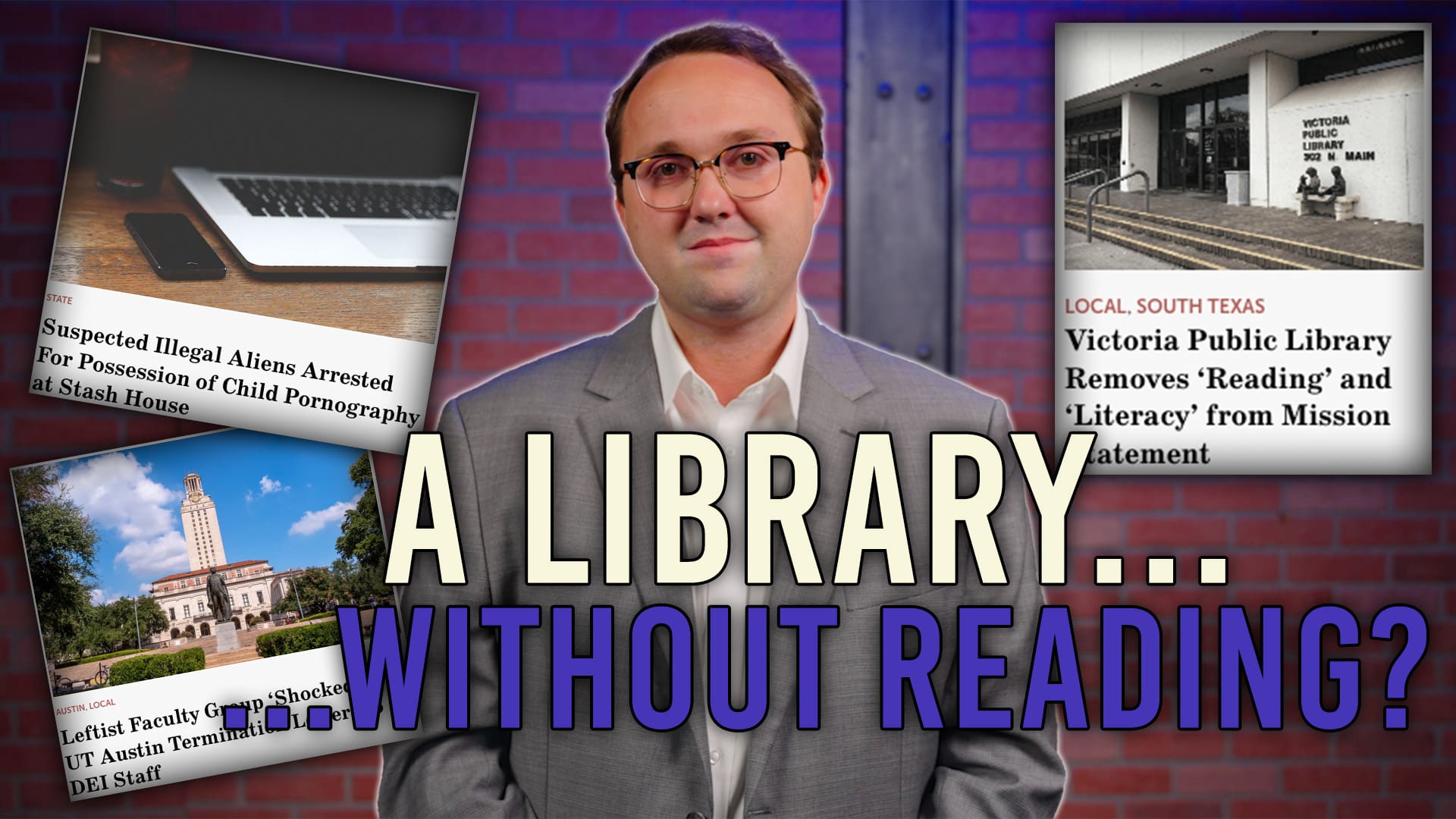Government collection of union dues has been a hot-button issue in at least the past two legislative sessions and is bound to rear its head again, especially now that many more public employee unions have willingly transferred their members to a private dues collection method.
The issue at hand is government entities collecting and remitting union dues for public employees who happen to be members. Opponents of the status quo have noted that the process poses a conflict of interest and also is unfair to groups who aren’t afforded the same opportunity. These unions give primarily to Democrats and, while dues are separate from political funds, government-sponsored membership drives that grow the union ranks helps bolster their political coffers.
Last session, the Houston Federation of Teachers, a subsidiary of the American Federation of Teachers, willingly converted their members over to private dues collection. At the time, the 6,000-member group said, “The HFT has begun the process to convert all members to ACH bank draft to pay union dues members.” Now, many others are following suit.
At least 13 of Texas AFT’s subsidiaries around the state of Texas have since converted over to bank draft only for the collection of union dues, and at least another 12 have moved from offering only payroll deduction to offering both options in anticipation of doing away with the payroll deduction in the future.
The Texas AFT associate member signup form doesn’t even provide the option for payroll deduction, and only permits signers to select dues payment via bank draft or credit/debit card.
The signup forms for individual organizations like the Houston Federation of Teachers, Austin Community College AFT, Bastrop AFT, and Corpus Christi AFT, to name a few, all read the same: that they are transitioning to private dues collection “so we can retain our power and keep our collective voice. Moving our members to the new payment system will allow us to continue standing strong, united, and using our collective voice on issues that matter to public education employees.”
 Supporters of the status quo have long argued that having government entities deduct dues from paychecks made it safer and easier for their employees and they didn’t want to burden their members, many of them older, with switching over to a new process.
Supporters of the status quo have long argued that having government entities deduct dues from paychecks made it safer and easier for their employees and they didn’t want to burden their members, many of them older, with switching over to a new process.
The problem with that argument is that they even say on their flier that it only takes five minutes to transition to bank draft, and undoubtedly banks are able to secure their customers’ private information better than government entities can.
AFT may be making this move willingly, but their eagerness to do so shows that private transactions are better than those done by the government. In the upcoming session, Texas lawmakers should finish the job for them and defund the Democrats by ending government collection of union dues.




